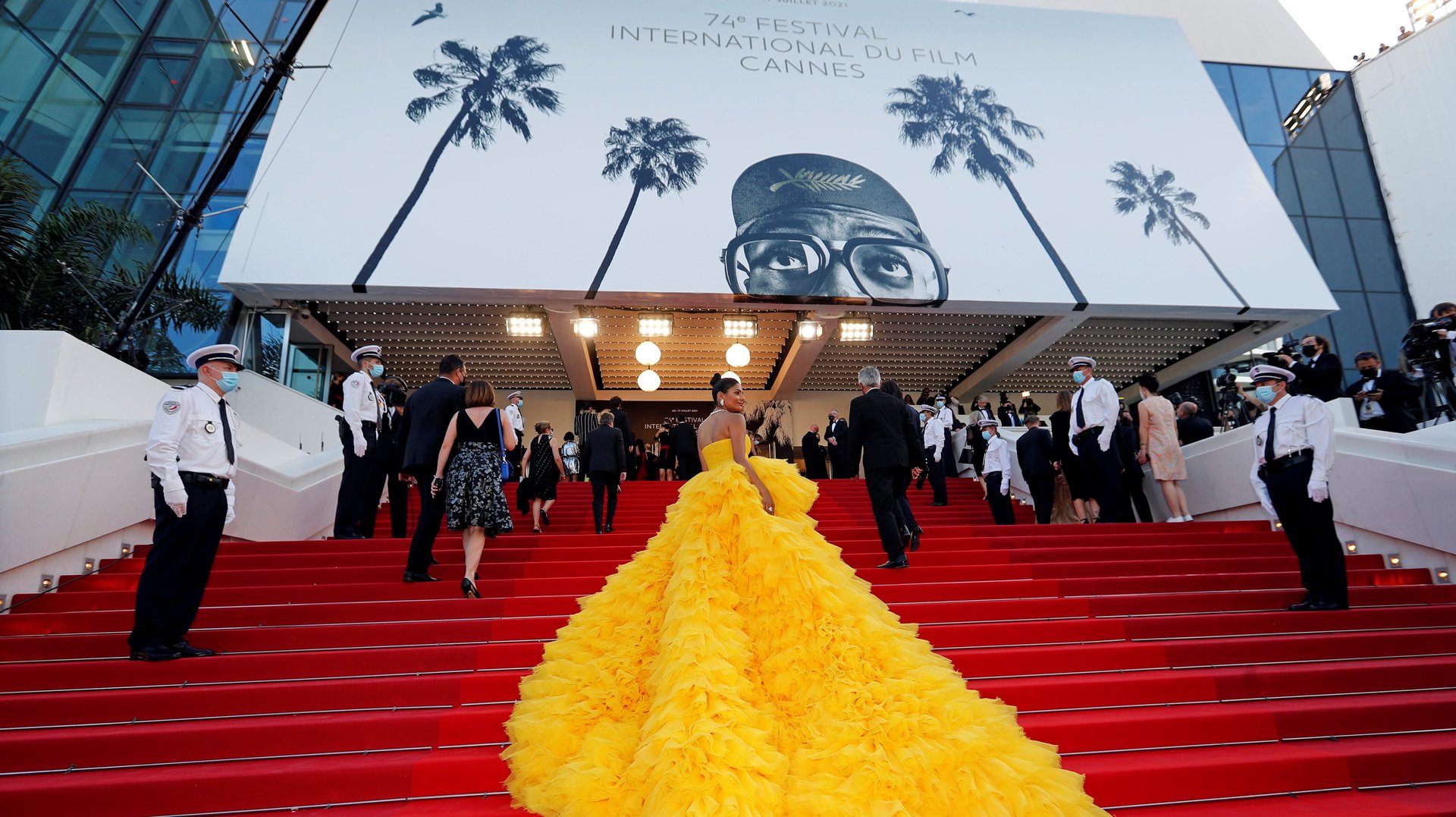Why is Netflix still feuding with Cannes?
After taking a year off due to the pandemic, the Cannes Film Festival is back this week—though much has changed. Attendees are spitting into tubes to be tested for Covid-19. Several of the festival’s lavish parties have been canceled. But one thing remains the same: the festival’s organizers are fighting with Netflix.


After taking a year off due to the pandemic, the Cannes Film Festival is back this week—though much has changed. Attendees are spitting into tubes to be tested for Covid-19. Several of the festival’s lavish parties have been canceled. But one thing remains the same: the festival’s organizers are fighting with Netflix.
Thierry Frémaux, the Cannes artistic director, took several shots at Netflix during a press conference with reporters July 5, reigniting a feud that started in 2017 when the festival introduced a rule that mandated films competing for prizes must have a theatrical release in France. That meant Netflix, which puts all of its films online immediately (with very few exceptions, like Martin Scorsese’s The Irishman), was barred from competition. As a result, Netflix pulled its films from the “out of competition” category too, and hasn’t been back to Cannes since.
Frémaux criticized other film festivals, like Venice, that allow Netflix movies to compete for awards, saying they “open their doors a bit too widely, perhaps, to people who we’re not sure about. We’re not absolutely sure that they really want the cinema to survive.”
He also argued that the streaming service acquired its foothold in the film industry by courting big-name directors rather than discovering new talent. Netflix did not immediately respond to a request to comment.
Frémaux’s comments underscore the philosophical gulf between the world’s leading streaming service and its most prestigious film festival. Thanks to the pandemic, Netflix has embraced theaters on certain occasions, but has no plans to drastically alter its business model as a predominantly at-home, on-demand service. Cannes, meanwhile, is set up to honor—and protect—what it sees as the sanctity of the cinematic experience. Netflix’s success is a threat to that.
Cannes still cold on Netflix despite the company’s investment in France
The tiff is especially ironic given how much Netflix has invested in France recently. The country has become arguably Netflix’s hottest market in Europe, and one of its most important worldwide. It opened a new office last year in Paris, expanded its team there, and announced a slew of French productions and partnerships with the local film community. Its French-language heist series, Lupin, is one of the service’s most popular.
But even as Netflix curries favor with the French film and TV elite, it still refuses to adhere to Cannes’ rules. The company simply does not need Cannes in order to thrive. It’s unclear how much longer the festival will be able to say the same about its counterpart.
The type of films that usually screen at Cannes—highbrow features from respected international filmmakers—are increasingly distributed through streaming services like Netflix and Amazon. Netflix earned more Oscar nominations than any other studio in both 2020 and 2021. In 2017, when the feud started, Netflix had not yet made as many inroads with the old guard of global cinema. Today, however, it’s the world’s biggest film distributor, and now faces much less resistance from the industry’s more traditional institutions. Except for Cannes.
If there’s to be a thaw in relations, it could be prompted by a neutral party. Spike Lee, the legendary US filmmaker, has made movies for Netflix and yet is also serving as the president of the Cannes jury this year. In fact, his Netflix film, Da 5 Bloods, was scheduled to screen out of competition last year—an exception to Netflix’s boycott—before the pandemic canceled the event.
“Cinema and screening platforms can coexist,” Lee told reporters yesterday. “At one time, there was a thinking that TV was going to kill cinema. This stuff is not new.”